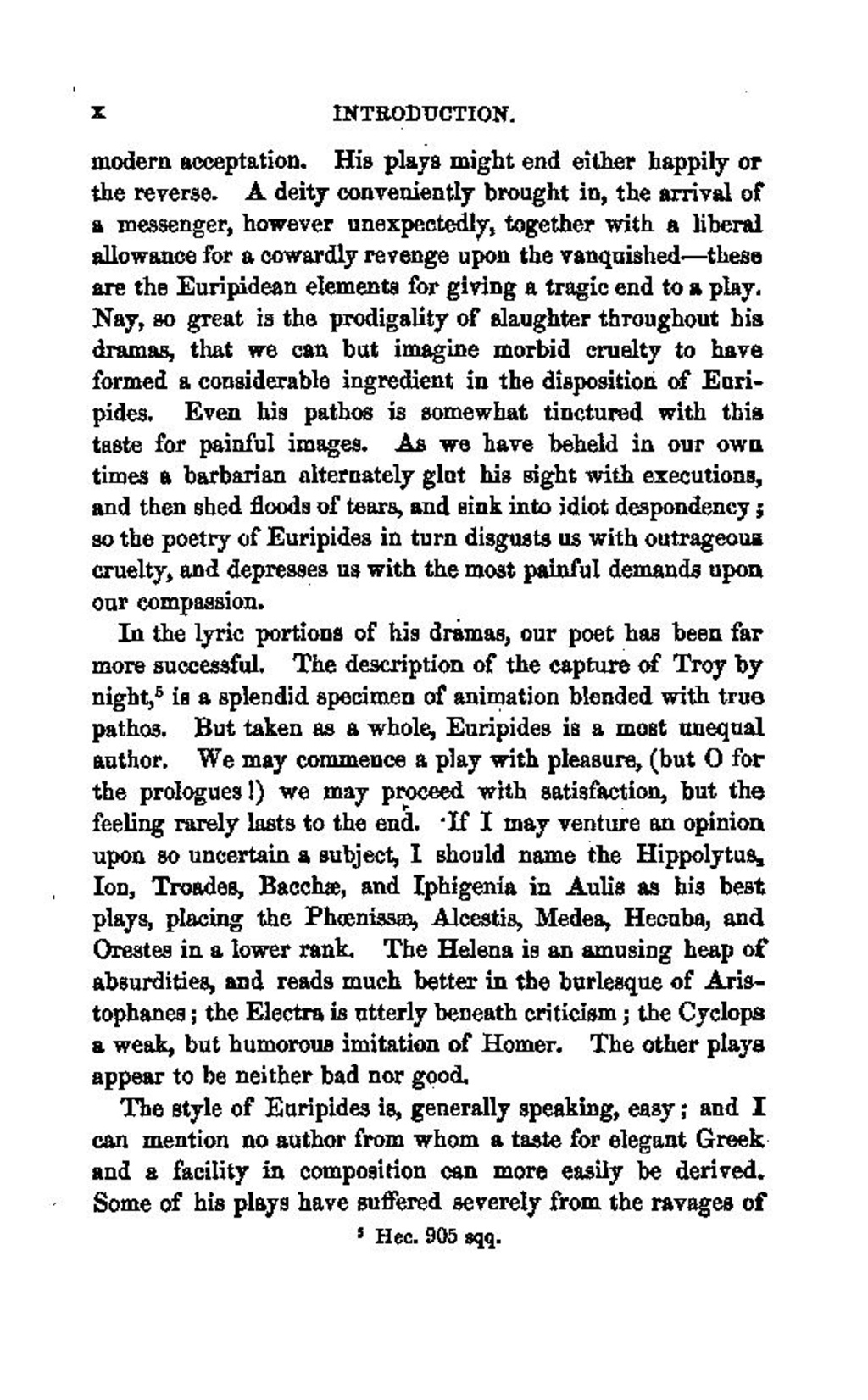modern acceptation. His plays might end either happily or the reverse. A deity conveniently brought in, the arrival of a messenger, however unexpectedly, together with a liberal allowance for a cowardly revenge upon the vanquished—these are the Euripidean elements for giving a tragic end to a play. Nay, so great is the prodigality of slaughter throughout his dramas, that we can but imagine morbid cruelty to have formed a considerable ingredient in the disposition of Euripides. Even his pathos is somewhat tinctured with this taste for painful images. As we have beheld in our own times a barbarian alternately glut his sight with executions, and then shed floods of tears, and sink into idiot despondency; so the poetry of Euripides in turn disgusts us with outrageous cruelty, and depresses us with the most painful demands upon our compassion.
In the lyric portions of his dramas, our poet has been far more successful. The description of the capture of Troy by night,[1] is a splendid specimen of animation blended with true pathos. But taken as a whole, Euripides is a most unequal author. We may commence a play with pleasure, (but O for the prologues!) we may proceed with satisfaction, but the feeling rarely lasts to the end. If I may venture an opinion upon so uncertain a subject, I should name the Hippolytus, Ion, Troades, Bacchæ, and Iphigenia in Aulis as his best plays, placing the Phoenissæ, Alcestis, Medea, Hecuba, and Orestes in a lower rank. The Helena is an amusing heap of absurdities, and reads much better in the burlesque of Aristophanes; the Electra is utterly beneath criticism; the Cyclops a weak, but humorous imitation of Homer. The other plays appear to be neither bad nor good.
The style of Euripides is, generally speaking, easy; and I can mention no author from whom a taste for elegant Greek and a facility in composition can more easily be derived. Some of his plays have suffered severely from the ravages of
- ↑ Hec. 905 sqq.
